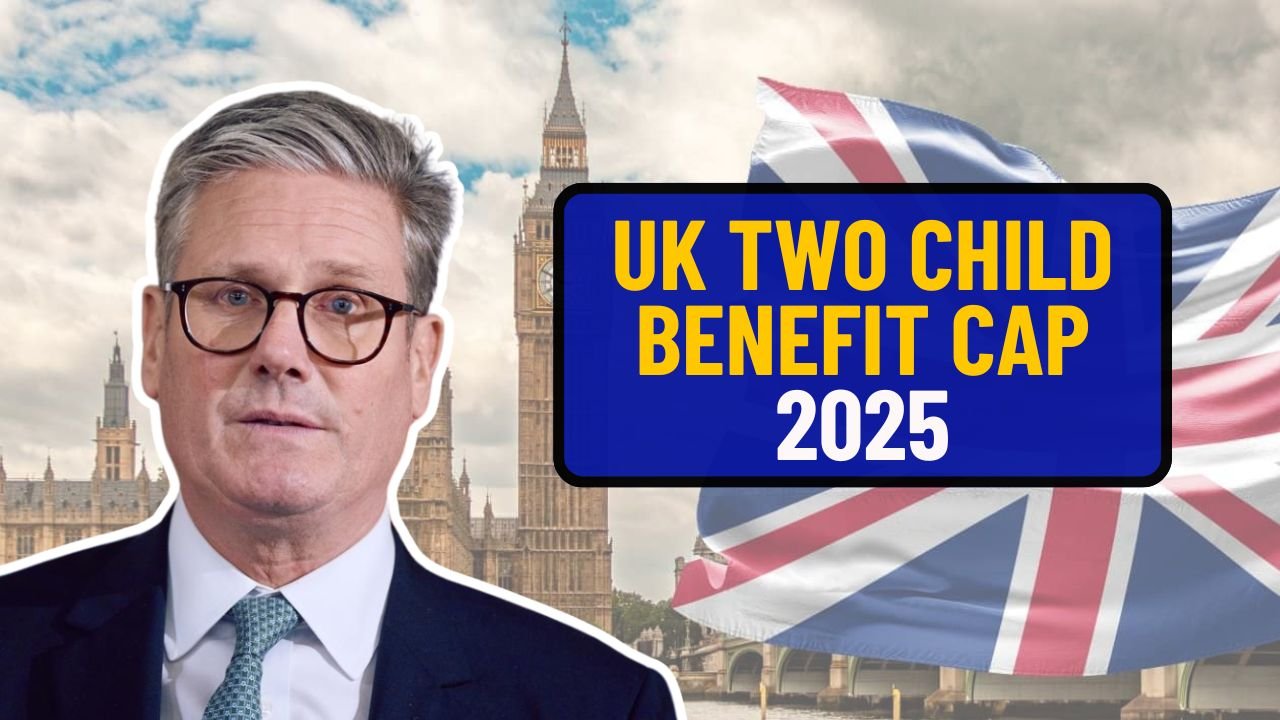In a significant policy shift, the UK government has officially placed the Two-Child Benefit Cap under review in 2025. First introduced in April 2017, the policy restricts Child Tax Credit and Universal Credit payments to the first two children in a family, affecting thousands of households across the country. Over the years, this rule has been subject to continuous criticism for its impact on child poverty, and this latest development could signal a major reform in social welfare policy.
Understanding the Two-Child Restriction
The Two-Child Benefit Cap prevents families from receiving financial support for a third or subsequent child born after 6 April 2017. The child element under Universal Credit, which is currently worth up to £3,455 per child annually, is only provided for the first two children. The rule was introduced as part of broader welfare reforms, intended to promote financial responsibility and work incentives. However, critics argue it places an unfair burden on larger families, particularly those already struggling with low incomes.
What Has Prompted the 2025 Policy Review
The growing call for the reevaluation of this policy stems from several key developments. A notable increase in child poverty has become a pressing national concern, with more than 4.3 million children in the UK living in poverty as of 2024. Researchers and social advocacy groups have consistently highlighted that the cap has failed to influence birth rates while significantly contributing to financial distress in low-income households. Reports linking the policy to food insecurity, homelessness, and poor mental health have added weight to public discontent. As the country nears a general election, the review reflects mounting pressure on policymakers to act.
Anticipated Policy Alternatives Under Discussion

The UK government is currently considering several potential outcomes for the future of the Two-Child Benefit Cap. A full repeal of the cap would be the most generous move, allowing benefits for all children regardless of birth order or date. However, with an estimated cost exceeding £3 billion annually, such a change may face fiscal resistance. A partial repeal is also on the table, which could allow benefits for children born before a future cut-off date or expand eligibility for specific groups such as single parents, families with disabilities, or those escaping abuse.
Expansion of Exemptions Being Considered
Under the current policy, exemptions exist only in limited cases such as multiple births, adoption, or children conceived through non-consensual circumstances. These rare exceptions may be broadened to provide relief to a larger group of affected families. Discussions are also exploring the possibility of increasing the amount of financial support within the cap without removing it, offering families a moderate increase while retaining the core structure of the policy.
Who Will See the Greatest Impact from Reform
Revisions to the Two-Child Benefit Cap would be especially beneficial to families who are already disproportionately affected. Data from the Department for Work and Pensions shows that over 1.5 million children are living in households impacted by the policy. Larger families with limited income, single-parent households, and ethnic minority communities many of whom tend to have more than two children would experience the most significant relief. Interestingly, more than half of the affected families have at least one working parent, demonstrating that the policy affects not just the unemployed, but also the working poor.
Broader Consequences for Society and Welfare
Experts and social welfare organisations have long cited the Two-Child Cap as a critical driver of child poverty in the UK. Children from families constrained by the cap are more likely to experience malnutrition, unstable housing conditions, and educational setbacks. According to the Child Poverty Action Group, adjusting or abolishing the policy could lift hundreds of thousands of children out of poverty almost instantly, setting a new tone for social equality and family welfare.
How Families Can Stay Prepared Amid Possible Changes
While the government continues its review, families currently subject to the cap should remain vigilant. Monitoring updates from official sources like GOV.UK and the Department for Work and Pensions is crucial. Parents are also encouraged to contact local representatives to voice their concerns. In the meantime, consulting benefits advisors or support organisations such as Citizens Advice can help families make informed decisions and prepare for upcoming changes.
Policy Crossroads with Implications for the Next Generation
As the Two-Child Benefit Cap undergoes scrutiny, the UK stands at a pivotal moment in social policy. Whether the policy is repealed, revised, or left unchanged, the decision will reflect broader values around family support, fairness, and poverty reduction. For the millions of parents and children affected, the outcome could redefine the future of welfare in Britain and shape the lives of generations to come.


